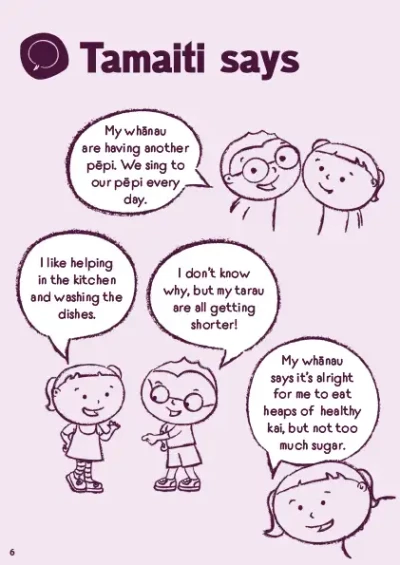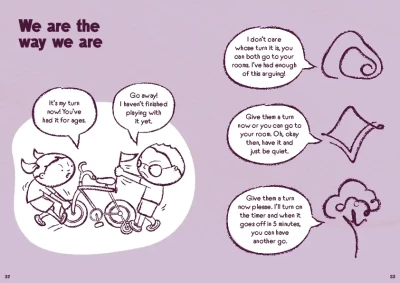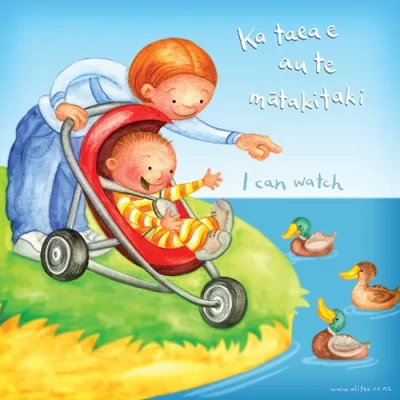
Saying sorry
Asking children to say sorry for hurting someone isn't always the best way for them to show empathy.
He aha ai? – Understanding why
Insisting that kids say sorry when they’ve hurt or upset someone may not mean the same thing to the child as it does to an adult.
Pātai atu ki te whānau:
- Do you always apologise when you’ve upset someone?
- What do you think we’re teaching kids when we insist they say sorry?
We might think that them saying sorry means they’ve taken responsibility for whatever they’ve done. But do young children really understand that?
Maybe they just think it’s using their manners, like saying ‘pardon me’ or ‘excuse me’ when they burp or fart, or that saying sorry will keep the adult from being grumpy.
Does ‘I’m sorry’ teach empathy?
If tamariki don’t actually understand what ‘I’m sorry’ means, they’re not learning from the experience and not really learning about empathy.
There are better ways to teach kids about empathy.
A better approach is to help them make the connection between what they’ve done and how it has hurt another person, either physically or emotionally.
Pātai atu ki te whānau:
- What ideas might work for your tamaiti to learn about how others feel?
Focusing on the other person’s feelings might help them to better understand how their behaviour has impacted on someone else.
Use examples and be specific:
- ‘Auē, look at Aroha. She’s crying and rubbing her arm where you hit her. Let’s find out if she’s OK. What could we do to help her feel better?’
Asking kids for their ideas is a great strategy for showing them that their opinion is important, and sometimes they have the answers within them.
Bringing their attention to others who are upset can be a starter for a kōrero about empathy.
- ‘Look at that pēpi. I wonder why she’s crying?’
- ‘Listen to that kuri making all that noise – what do you think he wants?’
Pātai atu ki te whānau:
- Have you got any other ideas?
What strategies do you think early childhood educators use when they have large groups of kids to teach?













